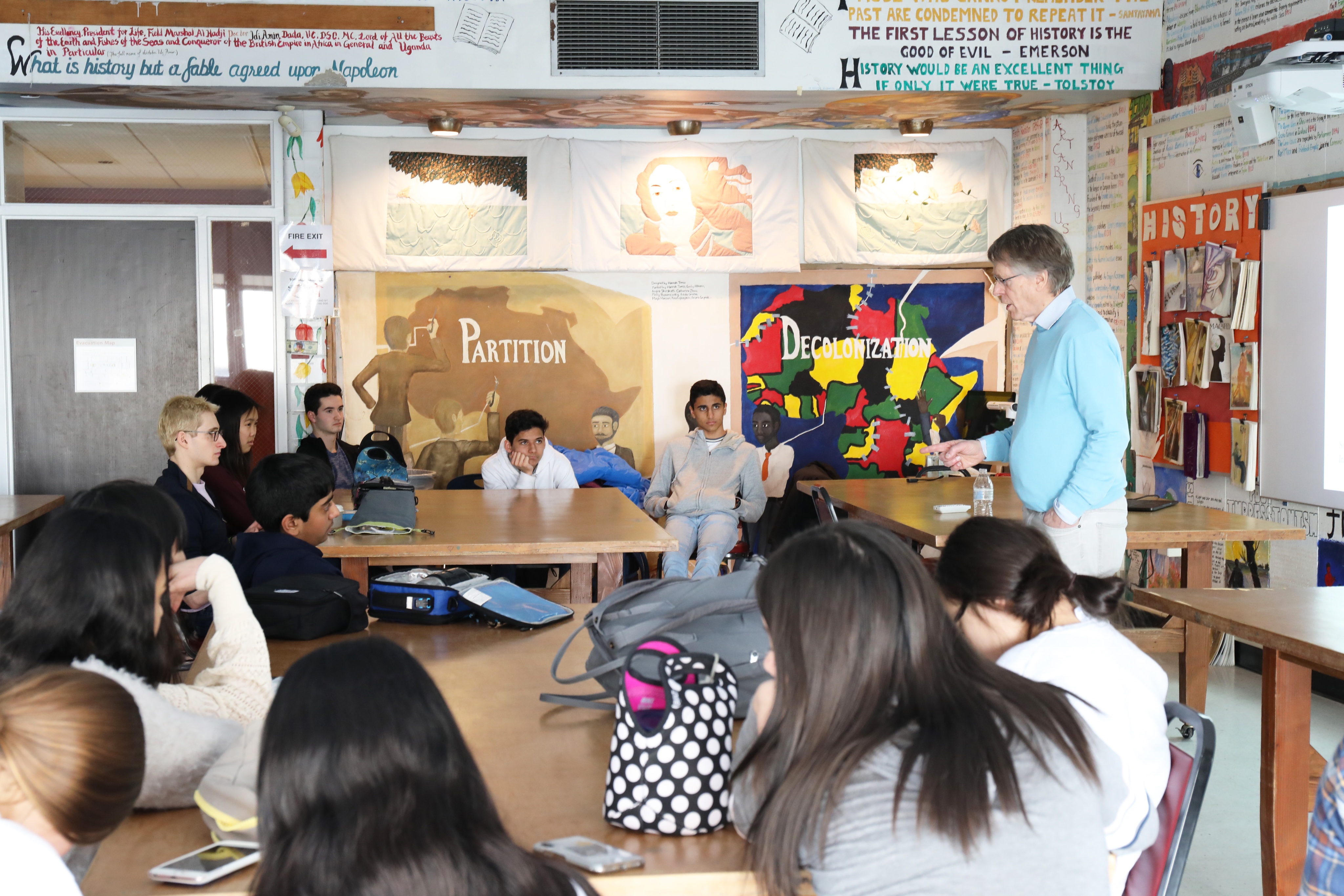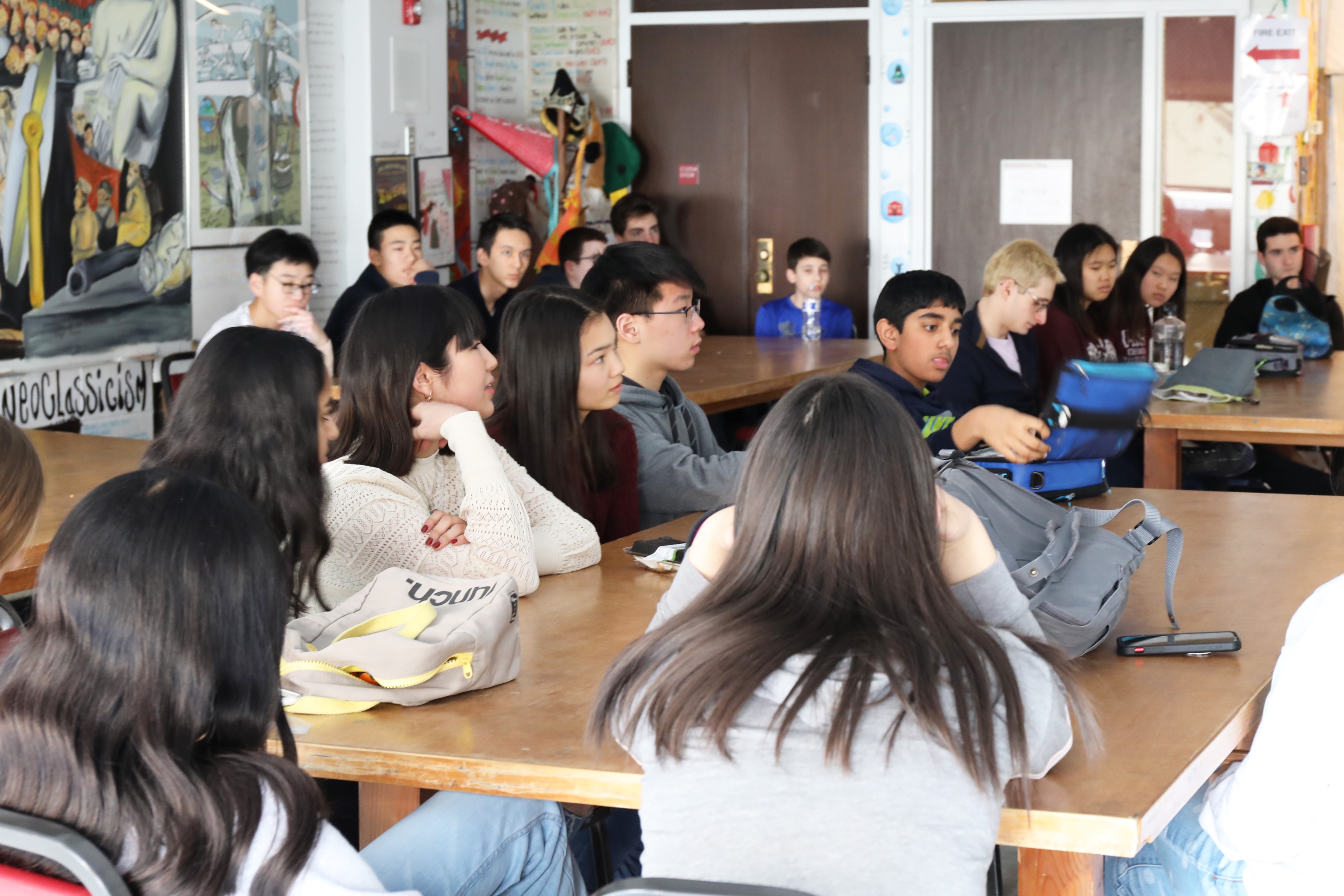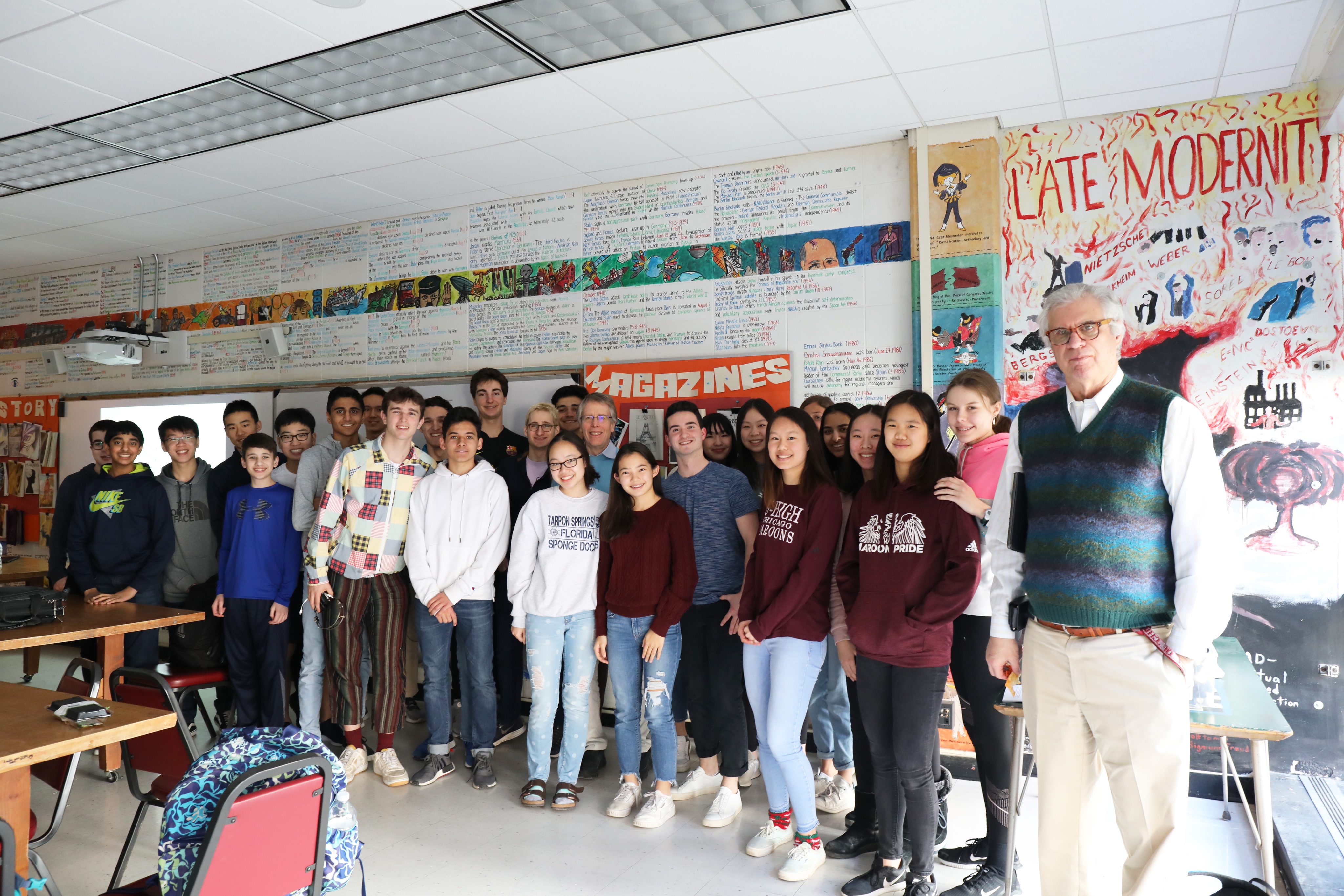University of Chicago Laboratory School U-High Finance Club
On February 19, 2020, Lars Peter Hansen gave a presentation to the University of Chicago Laboratory School U-High Finance Club.
Following the presentation, Hansen tweeted:
Yesterday, I gave a presentation to high-school students at the University of Chicago Lab School. It felt like the fountain of youth! It was my pleasure to talk to young and energized students thinking about their future and the world they live in!



Elementary Economics or, what a Nobel Prize means to a fourth-grader
Lars Peter Hansen was, by his own account, a less-than-stellar student in high school. Since winning the Nobel Prize in Economics in 2013, he has credited dedicated teachers for seeing his potential and helping him channel his interests and strengths. So today, Hansen takes time out from his research and teaching duties to speak with young students, sharing with them not only insights from his research, but also on how to find their own path to success.
While explaining uncertainty in economic modeling to young students, he also aims to inspire young minds to ask richer questions and think about how they confront probability and uncertainty in their daily lives.
Here, he shares some recent experiences with elementary and high school students and their teachers.
My brother Roger has done a lot of work with a Navajo reservation near the four corners region of the southwest. He asked if could talk to students there. I decided to add such a visit to my travel schedule. Of course this experience was very different from many that I have had with visits, talks and seminars over the last year and half.
In recent months, I have had the opportunity to talk to students in three grade schools: Adams Elementary School in Logan, Utah; the University of Chicago Laboratory Schools, and most recently Montezuma Creek Elementary School. I enjoyed very much all three visits, but each had a different character.
I appreciated the principal at Adams Elementary School who reached out to me, and I was particularly impressed by his commitment to the school. At Adams Elementary School and the Laboratory Schools, the teachers had prepared their students for my visit and encouraged their students to think of interesting questions in advance.
What impressed me about the teachers at Montezuma Creek Elementary School is their commitment to helping their students start thinking about their longer-term future. One of the teachers specifically asked me to talk about the advantages that I saw to getting education beyond high school. Both teachers at Montezuma Creek Elementary were happy to pitch in during my presentation by providing ways I could better communicate with their students.
My talk was about uncertainty and the challenges it poses in decision making. Given the material that I presented, examples are essential, and the teachers added some that were very helpful to their students; I had help and advice from Amy Boonstra, the Managing Director of Programs and Outreach at the Becker Friedman Institute, who helped me in developing an accessible visualization of different types of uncertainty using colored balls drawn from an urn.
Overall, the elementary students were very upbeat and energetic, and the two teachers were very engaged.
I also talked to some mathematics classes at Whitehorse High School in Montezuma Creek. This was my first time talking to high school students in many years, and I fear my talk was less effective. I remember one student stayed a bit after class and asked two questions. One was about how long it took to complete my research that led to my award. That one was very direct. Then she asked me an additional question and prefaced it with “please do not take this the wrong way, but why did you choose to come talk to us?”
This question really got me thinking afterwards. It was clearly asked by a student who was both paying attention and thinking independently. Overall, my experience at Whitehorse left me with an even greater appreciation for high school teachers who are truly successful in having an impact on their students and broadening their horizons.
That question also made me realize something important. For young minds like these, hearing about remarkable discoveries is one thing, but hearing about the unremarkable challenges they might face along the way to their own big ideas might be even more important. I find it tremendously rewarding to share the moments of my life that humbled me, shaped me, and made me who I am today, and I thank students and teachers for being such a receptive audience.
